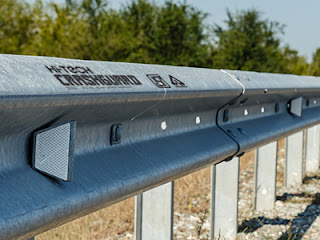Exploring ERW Pipes: A Key Component in Modern Infrastructure
Electric Resistance Welded (ERW) pipes are a significant innovation in the world of pipe manufacturing, playing a crucial role in various industries. Known for their efficiency, cost-effectiveness, and versatility, ERW pipes have become a go-to choice for numerous applications. In this blog, we will explore what ERW pipes are, their manufacturing process, advantages, and common applications.
What are ERW Pipes?
ERW pipes are a type of steel pipe that is manufactured using a process called Electric Resistance Welding. This method involves welding the edges of steel plates or coils together using high-frequency electrical currents, resulting in a strong, durable seam along the length of the pipe. ERW pipes are widely used for conveying oil, gas, and water, as well as for structural purposes in construction.
The Manufacturing Process of ERW Pipes
The production of ERW pipes begins with a flat steel plate or coil, which is formed into a cylindrical shape through a series of rollers. Once the steel is shaped, the edges are brought together and welded using an electric resistance welding process. The key steps in the manufacturing process include:
Forming: The flat steel is gradually formed into a round pipe shape using rollers.
Welding: The edges of the formed steel are heated and fused together using high-frequency electric currents. This creates a strong, continuous weld seam along the pipe's length.
Sizing and Shaping: The welded pipe is passed through a series of sizing mills to achieve the desired dimensions and shape.
Cutting: The pipe is cut to the required length.
Inspection and Testing: The finished pipes undergo rigorous inspection and testing to ensure they meet industry standards and specifications.
Advantages of ERW Pipes
ERW pipes offer several advantages that make them a popular choice across various industries:
High Efficiency: The manufacturing process of ERW pipes is highly efficient, allowing for the production of large quantities of pipes in a relatively short period. This makes them a cost-effective solution for large-scale projects.
Consistent Quality: The use of advanced technology in the ERW process ensures a high level of consistency and precision in the final product, resulting in pipes with uniform dimensions and a smooth surface finish.
Strength and Durability: ERW pipes are known for their strength and durability, thanks to the strong weld seam created during the manufacturing process. This makes them suitable for applications that require high pressure and structural integrity.
Cost-Effectiveness: ERW pipes are generally more affordable than seamless pipes, making them an attractive option for projects with budget constraints.
Versatility: ERW pipes can be produced in various sizes, thicknesses, and materials, making them suitable for a wide range of applications.
Common Applications of ERW Pipes
ERW pipes are used in a variety of industries due to their versatility and reliability. Some of the most common applications include:
Oil and Gas Industry: ERW pipes are extensively used for the transportation of oil, gas, and other fluids. Their strength and durability make them ideal for high-pressure environments.
Water Supply Systems: ERW pipes are commonly used in water supply and distribution systems, providing a reliable and cost-effective solution for transporting water over long distances.
Structural Applications: In the construction industry, ERW pipes are used for structural purposes, including the building of scaffolding, fencing, and frameworks.
Automotive Industry: ERW pipes are used in the manufacturing of automotive components, such as exhaust systems and roll cages, due to their strength and ease of fabrication.
Agriculture: ERW pipes are used in agricultural irrigation systems, providing a durable and efficient means of transporting water to crops.
Conclusion
ERW pipes are a cornerstone of modern infrastructure, offering a combination of strength, durability, and cost-effectiveness that makes them indispensable across various industries. Whether in the oil and gas sector, construction, or water supply systems, ERW pipes continue to provide reliable performance and are a testament to the advancements in pipe manufacturing technology. As industries continue to evolve, the demand for high-quality ERW pipes is likely to grow, ensuring their place as a critical component in the development of infrastructure worldwide.
More Read: ERW Pipes

Comments
Post a Comment